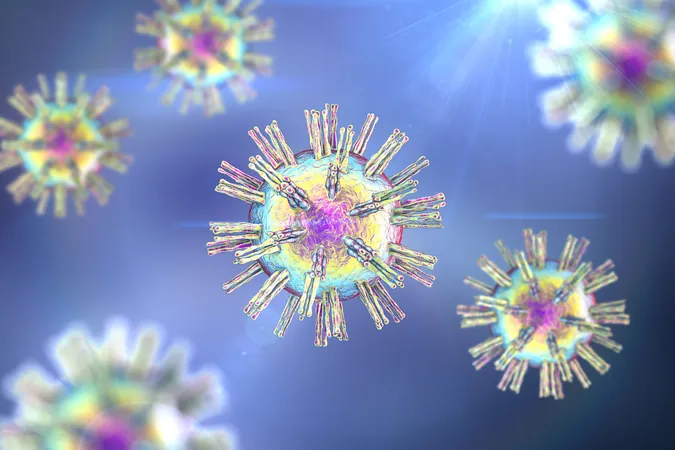
Breakthrough in Cancer Treatment: New Oncolytic Virus Shows Promise Against Advanced Melanoma
2025-07-18
Author: Daniel
Groundbreaking Trial Results Offer Hope for Melanoma Patients
In an exciting new trial showcased by researchers at Keck Medicine of USC during the 2025 American Society of Clinical Oncology annual meeting, a genetically engineered herpes simplex virus type 1 (HSV-1) paired with the immunotherapy drug Opdivo (nivolumab) has delivered extraordinary results for patients battling advanced melanoma. Remarkably, one-third of participants witnessed their tumors shrink by at least 30%, and nearly one in six experienced complete tumor disappearance!
Dr. Gino Kim In, leading the research, expressed optimism, stating, "These findings are very encouraging because melanoma is the fifth most common cancer among adults, and approximately half of advanced cases remain resistant to existing treatments. A survival rate of just a few years for these patients underscores the urgency of new therapies. This combination could be a game-changer for those with limited options."
Melanoma: A Growing Challenge
The American Cancer Society projects over 100,000 new melanoma cases this year in the U.S., with a staggering 8,400 anticipated deaths. As one of the most aggressive forms of skin cancer, melanoma remains a critical health concern, especially as traditional immune therapies often fail.
The IGNYTE trial enrolled 140 patients globally whose advanced melanoma either did not respond or had ceased responding to immunotherapy. Participants received Replimune's RP1, an innovative oncolytic virus combined with Opdivo.
How RP1 Works Wonders
RP1 (vusolimogene oderparepvec) belongs to a revolutionary class of cancer immunotherapies known as oncolytic viruses. This therapy, currently undergoing trials, is engineered to not only directly attack cancer cells but also to enhance the body’s immune response. Its predecessor, Amgen's Imlygic, was the first oncolytic virus approved by the FDA back in 2015. Injected directly into tumors, it activates the immune system to combat cancer.
RP1 is designed to replicate within tumors, promoting destruction while simultaneously elevating white blood cell activity to hunt down malignant cells throughout the body. Researchers believe that the synergy between RP1 and Opdivo, which utilizes the body’s immune system, could yield even greater therapeutic outcomes.
Promising Results and Insights
Throughout the clinical trial, patients received a bi-weekly combination of RP1 and Opdivo for up to eight cycles. Those responding positively continued with Opdivo every four weeks for as long as two years. The results were remarkable: an overall response rate of 32.9%, with a 75.3% survival rate after one year, dropping to 54.8% by the third year.
Significantly, 93.6% of injected tumors shrank by at least 30%, and astonishingly, 79% of non-injected tumors showed similar reductions or even vanished. The trial highlighted that deeper injections yielded better responses compared to superficial ones, demonstrating the treatment's effectiveness.
A Bright Future for Melanoma Treatment
Biomarkers linked to immune activation were positively associated with treatment responses, indicating robust immune engagement. The safety assessment also looked favorable, with mostly mild adverse effects, suggesting that RP1 and Opdivo could pave the way for a new era in melanoma treatment.
As we continue to explore and innovate in cancer therapies, RP1 may become a beacon of hope for countless melanoma patients who have run out of options.

 Brasil (PT)
Brasil (PT)
 Canada (EN)
Canada (EN)
 Chile (ES)
Chile (ES)
 Česko (CS)
Česko (CS)
 대한민국 (KO)
대한민국 (KO)
 España (ES)
España (ES)
 France (FR)
France (FR)
 Hong Kong (EN)
Hong Kong (EN)
 Italia (IT)
Italia (IT)
 日本 (JA)
日本 (JA)
 Magyarország (HU)
Magyarország (HU)
 Norge (NO)
Norge (NO)
 Polska (PL)
Polska (PL)
 Schweiz (DE)
Schweiz (DE)
 Singapore (EN)
Singapore (EN)
 Sverige (SV)
Sverige (SV)
 Suomi (FI)
Suomi (FI)
 Türkiye (TR)
Türkiye (TR)
 الإمارات العربية المتحدة (AR)
الإمارات العربية المتحدة (AR)